Mazur, Suzan. The Altenberg 16: An Exposé of the Evolution Industry.North Atlantic Books, 376 p. Pb, 9781556439247, $25. 2/9/10.
The book grew out of a story Mazur broke online in March 2008—titled “Altenberg! The Woodstock of Evolution?”—about the now famous meeting at Konrad Lorenz Institute in Altenberg, Austria in July 2008, where 16 scientists discussed expanding evolutionary thinking beyond outdated hypotheses. (MIT Press will publish the proceedings in April 2010.) Science magazine noted that Mazur’s reporting “reverberated throughout the evolutionary biology community.” – Publisher description.
Massimo Pigliucci, Massimo and Gerd B. Müller, eds. Evolution: the Extended Synthesis. Mit Press, 504 p. Pb, 9780262513678, $40. 4/10. [Altenberg proceedings]
In the six decades since the publication of Julian Huxley’s Evolution: The Modern Synthesis, spectacular empirical advances in the biological sciences have been accompanied by equally significant developments within the core theoretical framework of the discipline. As a result, evolutionary theory today includes concepts and even entire new fields that were not part of the foundational structure of the Modern Synthesis. In this volume, sixteen leading evolutionary biologists and philosophers of science survey the conceptual changes that have emerged since Huxley’s landmark publication, not only in such traditional domains of evolutionary biology as quantitative genetics and paleontology but also in such new fields of research as genomics and EvoDevo.
Most of the contributors to Evolution—The Extended Synthesis accept many of the tenets of the classical framework but want to relax some of its assumptions and introduce significant conceptual augmentations of the basic Modern Synthesis structure—just as the architects of the Modern Synthesis themselves expanded and modulated previous versions of Darwinism. This continuing revision of a theoretical edifice the foundations of which were laid in the middle of the nineteenth century—the reexamination of old ideas, proposals of new ones, and the synthesis of the most suitable—shows us how science works, and how scientists have painstakingly built a solid set of explanations for what Darwin called the “grandeur” of life.
Contributors: John Beatty, Werner Callebaut, Jeremy Draghi, Chrisantha Fernando, Sergey Gavrilets, John C. Gerhart, Eva Jablonka, David Jablonski, Marc W. Kirschner, Marion J. Lamb, Alan C. Love, Gerd B. Müller, Stuart A. Newman, John Odling-Smee, Massimo Pigliucci, Michael Purugganan, Eörs Szathmáry, Günter P. Wagner, David Sloan Wilson, Gregory A. Wray. – Publisher description.
From: Creation & Science Chronicle.
Additional information about the “The Extended Synthesis” can be found in Pigliuuci’s article for the Annals of New York Academy of Sciences, An Extended Synthesis for Evolutionary Biology.

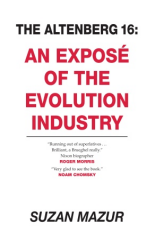

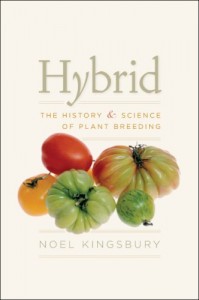
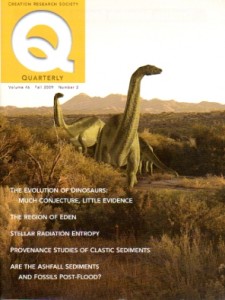 by Jerry Bergman
by Jerry Bergman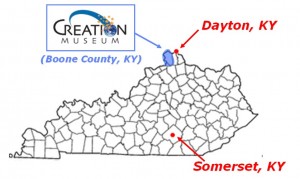
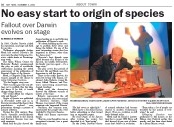 Today’s whopper comes courtesy of New Zealand’s The Hutt News. It seems that an award winning Wellington playwright, Arthur Meek, has produced a play called
Today’s whopper comes courtesy of New Zealand’s The Hutt News. It seems that an award winning Wellington playwright, Arthur Meek, has produced a play called 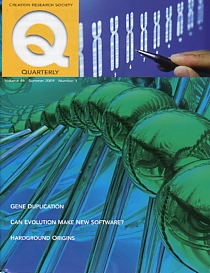 by John Woodmorappe
by John Woodmorappe